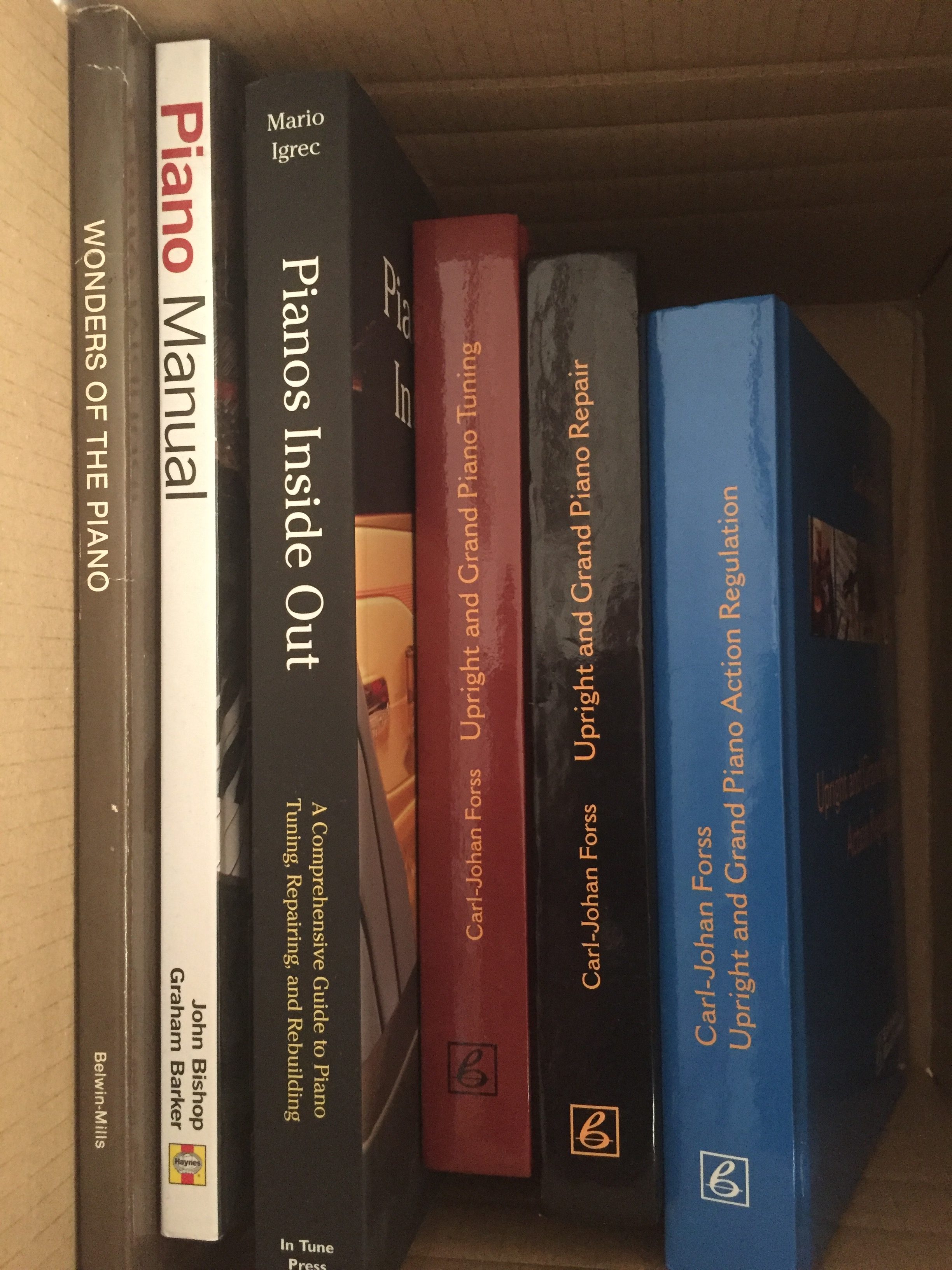
What does the Leeds and Bradford Piano Tuner do in his time off? Tonight I’ll spend the evening engrossed in study. I always learn something new about pianos every time I pick up one of these fascinating books – there’s always something that didn’t register on the first, second or third readings. The above image shows only half of my collection, there is another box with other engaging reads such as Five London Piano Makers (a charming history of five well-known piano firms: Brinsmead, Challen, Collard, Danemann and Welmar), the definitive Piano Servicing, Tuning and Rebuilding by Arthur Reblitz (every piano tuner must own this book), the PTA’s Handbook of Piano Regulation, and several of Brian Capleton’s concise studies of piano tuning and regulation (which are interesting from a more scientific perspective, particularly if you’re interested in the physics behind beats, harmonic overtones, etc). The Reblitz book actually stays with me in the car at all times, so that if I arrive early to a Bradford or Leeds piano tuning, I can dip in and read it for ten or fifteen minutes to pass some time. Even after working in the piano trade for several years, one can always pick up some second-hand knowledge from these books which helps one repair or restore pianos more efficiently.
If you’re a trainee piano tuner (hopefully not a Bradford or Leeds Piano Tuner! I don’t need more competition) who has found this blog post via a search engine I’d start with the Reblitz book and then move on to the Carl-Johan Forss books. Obviously they won’t substitute first-hand experience, but they’ll be an excellent way to supplement a part time piano tuning course. If you’re computer-savvy there are lots of other options online, but I’d be more skeptical about things you read pertaining to piano tuning and repairs on the internet. At least on a piano tuner’s forum other technicians can dispute any misleading information until you’re aware of the general consensus. I have found the advice forum on piano-tuners.org and the piano tuner-technician’s forum at Pianoworld to be useful in this way.